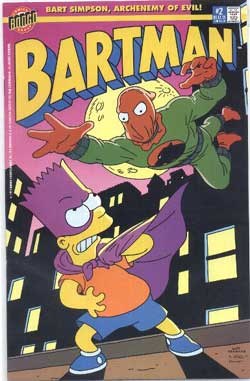NEWS RELEASE
CONGRESSMAN BART STUPAK 1ST CONGRESSIONAL DISTRICT OF MICHIGAN
************************* Stupak, Ramstad introduce copper theft prevention act
WASHINGTON - U.S. Congressman Bart Stupak (D-Menominee) has introduced legislation in the U.S. House of Representatives that would make it easier for law enforcement officials to investigate the rapidly growing crime of copper theft.
H.R. 6831, the Copper Theft Prevention Act, would require scrap metal dealers to document copper transactions and would prohibit cash transactions of more than $500 for scrap copper.
Stupak and U.S. Congressman Jim Ramstad (R-Minn.), co-chairmen of the congressional law enforcement caucus, introduced the legislation with the support of the Coalition Against Copper Theft.
“The Copper Theft Prevention Act will help protect consumers, businesses and our nation’s critical infrastructure,” Stupak said. “Copper thefts are causing power outages, downing phone lines, disrupting the delivery of products and costing businesses and homeowners billions of dollars a year. My bill would give law enforcement officials the tools they need to investigate these crimes.”
“Copper is crucial to our basic infrastructure, delivering power and communications to homes, businesses and hospitals, and copper theft is interrupting these critical public services,” Ramstad said. “This important bill will crack down on the demand for stolen copper and on those who profit from the theft.”
Since 2006, metal theft has been on the rise due largely to the surge in global demand for scrap metal.
The price of copper has more than quadrupled from about 83 cents per pound in 2000 to more than $4 per pound in 2008.
Tight supplies have led to an increase in copper recycling, which has created a market for used copper and has made copper an attractive target for theft.
Law enforcement agencies around the country have seen copper stolen from utility substation transformers, utility poles, railroad signaling wire and foreclosed homes.
Stolen copper and other metals are sold to scrap metal yards.
Many copper theft arrests have shown a link between theft and illegal drug activity, particularly methamphetamine.
In Michigan, AT&T reported a 140 percent increase in wire theft from 2006 to 2007.
DTE Energy reported 400 thefts of utility property in the last year and losses of almost $7 million to copper theft.
Twenty-eight states have enacted copper and scrap metal theft laws.
In January 2007, Michigan enacted two laws to address copper theft.
H.B. 6599 requires licensure for scrap metal processors as secondhand or junk dealers and requires record keeping by such licensees.
H.B. 6630 establishes sentencing guidelines for buying and selling stolen scrap metal, including metal from utility poles, telecommunications company property, government property or utility property.
“Many states, including Michigan, have taken action to address the growing problem of copper theft,” Stupak said. “But a patchwork of state laws is not doing enough to prevent copper theft and help investigators solve these crimes. A baseline federal law will provide the uniformity law enforcement agencies need and eliminate any safe haven that currently exists for copper thieves.”
Under Stupak’s proposed legislation, scrap dealers would face civil penalties of up to $10,000 for failing to document transactions or engaging in cash transactions of more than $500.
Scrap dealers would be required to keep records of copper transactions, including the name and address of the seller, the date of the transaction, the quantity and a description of the copper being purchased, an identifying number from a driver’s license or other government-issued identification and, where possible, the make, model and tag number of the vehicle used to deliver the copper to the scrap dealer.
Scrap metal dealers would be required to maintain these records for a minimum of two years from the date of the transaction and make them available to law enforcement agencies for use in tracking down and prosecuting copper theft crimes.
The bill would also require scrap metal dealers to perform transactions of more than $500 by cheque rather than cash.
“The coalition is proud to have fighters like Representatives Stupak and Ramstad on our side in the battle against copper thieves,” said Bryan Jacobs, executive director of the Coalition Against Copper Theft. “As a former law enforcement officer, Representative Stupak understands this problem better than anyone. I’ve heard from officers from around the country who are spending an inordinate amount of time searching for information to put these thieves behind bars. The most important part of the bill is that it gives law enforcement authorities the tools they need to investigate these crimes and put these criminals behind bars.”
H.R. 6831 has been referred to the House Energy and Commerce Committee, on which Stupak serves.
*************************
